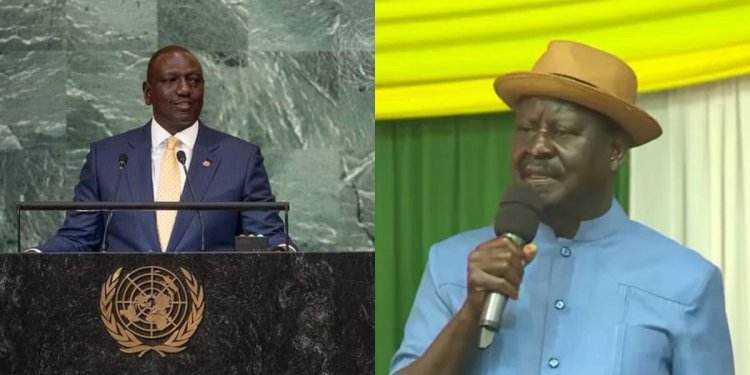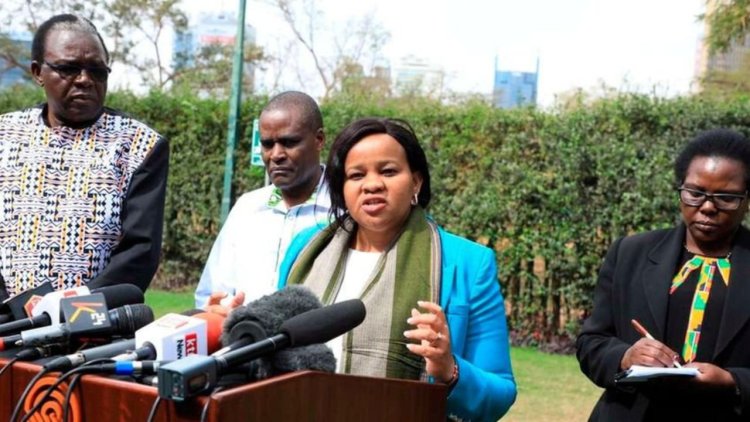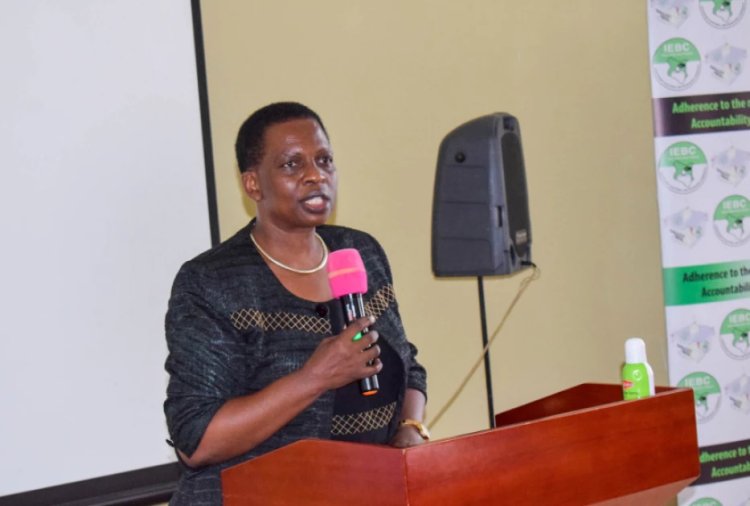How ICC Forced Raila To Accept Loss To Ruto
Raila noted that he had to let go of the victory of William Ruto of Kenya Kwanza in the polls without calling for mass protests.

Former Prime Minister Raila Odinga disclosed how the likelihood of post-election violence and the fear of facing charges at the International Criminal Court (ICC) forced him to accept the 2022 election results.
Speaking during a thanksgiving event at a Safari Park on Thursday, September 29, Raila noted that he had to let go of the victory of William Ruto of Kenya Kwanza in the polls without calling for mass protests.
He related the infamous press conference by the four dissenting Independent Electoral and Boundaries Commission (IEBC) commissioners to an event in 2010 in the Ivory Coast whereby the election body chairperson, Youssouf Bakayoko, had announced the results in a rush after colliding with his juniors.
IEBC vice chairperson, Juliana Cherera and her colleagues, Irene Masit, Francis Wanderi and Justus Nyang'aya had opposed the presidential results in similar circumstances.

The West African nation was then thrown into post-election skirmishes that saw former president, Laurent Gbagbo, accused of crimes against humanity at the International Criminal Court (ICC).
In Kenya, IEBC chairperson, Wafula Chebukati also declared William Ruto as president-elect at Bomas of Kenya while his deputy rejected the results at a parallel press conference along with three other commissioners, an eventuality that almost took the said angle.
“That member of the commission was acting on behalf of the then President who had lost the election. The chairman went to a secret location and announced the results then left the country in a quagmire.
"Close to one million lives were lost. I was appointed by the African Union to go and mediate in that conflict,” he said.
Odinga and his camp still claimed that they won the elections “by over 60 per cent” but his victory was shattered by the IEBC and the seven-judge bench at the Supreme Court of Kenya.
His latest push to initiate reforms at the IEBC and the Judiciary, he said, was not stemming from the bitterness coming from the defeat in the polls but to ensure a democratic society “even after he is long gone”.
“We won the elections hands down. When history is written the facts will come out. They did not even get 50 per cent,” said Odinga.
“As a member of the Azimio coalition, you should walk tall and feel proud because you are a member of a big movement that won the 2022 election. We know what happened. Kenyans will get to know why we have an illegitimate regime in power. We will continue to illegitimise this regime because they usurped power."
In its full judgement, the apex court deducted Chebukati's powers, ruling that he does not have unilateral powers to verify and declare presidential results.
"IEBC ought to effect formal internal guidelines that clearly delineate the policy, strategy, and oversight responsibility of the Chairperson and the Commissioners; and develop institutionalized guidelines on how to manage the separation of administrative and policy domains.
"The roles of the Chairperson, Commissioners, and the Chief Executive Officer, other staff and third parties should be clearly set out in both the legislative and administrative edicts," the apex court recommended to IEBC in the judgement.
The tussle involving the four commissioners took a direr turn when IEBC Deputy Chief Executive Officer (CEO) Ruth Kulundu was dragged into the mix, with her boss, CEO Marjan Marjan, accusing her of assisting the Cherera-led team.
Kulundu was, however, reinstated to the office after the High Court invalidated Marjan's directives on Friday, September 30.

IEBC Deputy CEO, Ruth Kulundu. /CITIZEN DIGITAL

 admin
admin 




